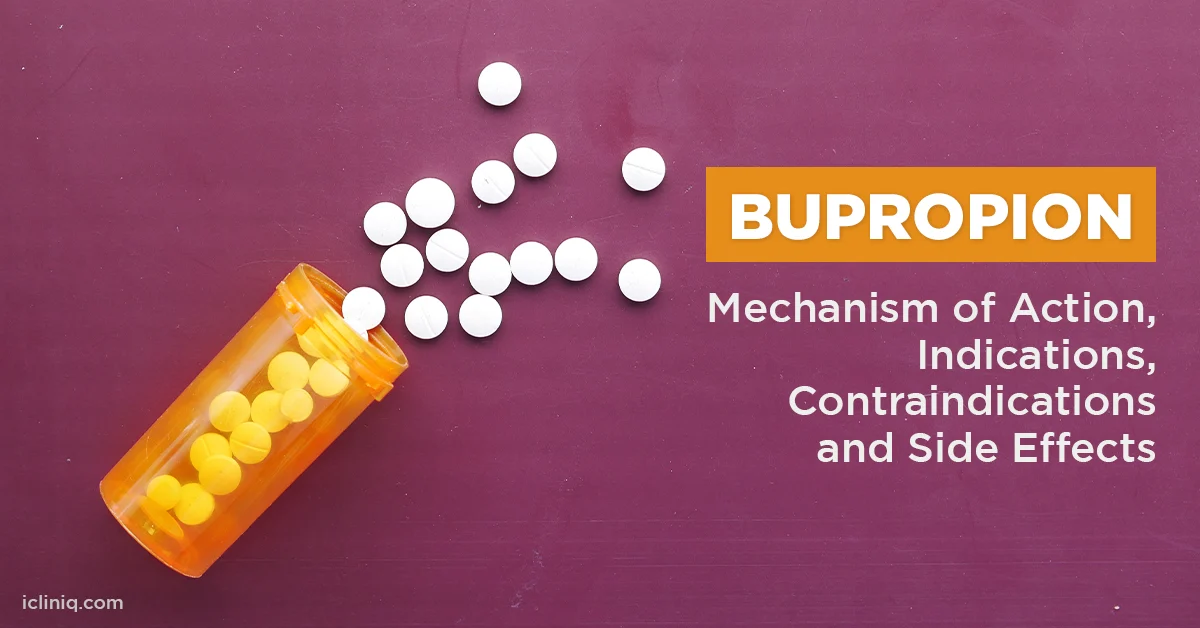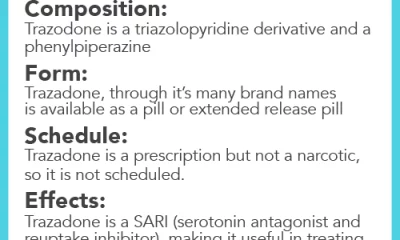Health
Benefits of coconut oil for skin

Discover the benefits of coconut oil for the skin.
To combat the signs of aging, revitalize our skin and hair, prevent stretch marks, or even fight acne, we will discover some of the many benefits of coconut oil
Coconut oil has become in recent years, in addition to being essential among lovers of good nutrition, one of the best natural allies that we can incorporate into the world of beauty.
A product that was already appreciated in ancient times for its moisturizing and regenerating properties, both on the skin and the hair, and that today is present in many treatments and beauty products.
Celebrities such as Gwyneth Paltrow, Ariadne Artiles, or even Miranda Kerr have confessed to having already made it one of their best beauty products, making it the best natural moisturizer, the best remedy to prevent stretch marks or even anti-aging. Today we discover seven uses that you can incorporate right now into your daily beauty routine. Take note!
The best hair repair and revitalizer
Coconut oil can become one of the best allies of our hair. The reason? It fights dryness and revitalizes it, making it look much stronger and healthier and even reducing dandruff.
If your hair is rather dry and you need a good dose of hydration, a good way to get it is by using this oil before washing your hair and as a mask. The best thing, in this case, is that you start by testing with small amounts of oil to see how your hair responds.
If you want to repair it and your hair tends to be greasy, try applying a small amount only from the middle to the ends, for about 30 minutes and then rinse with plenty of water.
Moisturizes and brightens the skin
Coconut oil is responsible for restoring the neutral Ph of the skin, helping to eliminate fat, but also keeping our skin hydrated and bright.
In addition, it can also become one of the best anti-aging creams and all thanks to Vitamin E and the antioxidants that are present in its formulation, which is responsible for smoothing wrinkles and expression lines. In addition to this, it is also responsible for preserving the collagen and elastin of our skin, making it much more elastic and flexible.
scrub
Another of the many uses that you can give to coconut oil is to turn it into an exfoliant, both for the face and the rest of the body. And it is that in addition to revitalizing, moisturizing, illuminating, and rejuvenating the skin, it is also responsible for eliminating dead cells.
How to turn it into a scrub? Mix a tablespoon of coconut oil and two tablespoons of coffee in a cup and voila! You can vary the quantities depending on the amount of scrub you need.
To prevent stretch marks
Several studies have shown that the use of coconut oil can help prevent the appearance of stretch marks and all thanks to its moisturizing qualities.
It is best to apply it in the morning and at night in those areas most prone to the appearance of stretch marks (breasts, abdomen, buttocks, arms…) and, above all, if you are going to submit to any situation that may lead to stretch marks. occurrence, such as weight loss or pregnancy.
As lip balm
Certain lipsticks or changes in temperature, especially in winter, can end up drying out the lips and favoring the appearance of cracks. If this is your case, do not hesitate to apply a little coconut oil on them to moisturize them. We assure you that it will become the best lip balm.
Makeup remover
In addition to hydrating, revitalizing, and acting as an anti-aging agent, coconut oil also helps to deeply cleanse the skin by removing dead cells without damaging the skin and without any type of chemical or aggressive ingredient, as may be the case with other make- up remover products that are not of natural origin. It is also perfect for the most sensitive skin and helps soothe irritated skin.
To remove make-up, take a small amount of pure coconut oil and heat it with your hands until it melts. Then apply it with the help of a make-up remover pad and massage your skin with circular movements to gradually remove the make-up. Finally, remove the remains of makeup with warm water and neutral soap.
Helps fight acne
Coconut oil is also one of the best allies to treat and combat acne, as it acts as an antiseptic, antibacterial, anti-inflammatory, regulates the PH, and excess sebum, and helps regenerate the skin, in addition to moisturizing it.
Before applying it to your face, make sure your skin is free of makeup and completely clean, then take a little coconut oil and apply it with your fingers, massaging gently in a circular motion to activate circulation and help it penetrate the skin, let it act for about 20 minutes and finally rinse the face with lukewarm water and neutral soap or with a toner suitable for your skin type.
Health
Contraindications and side effects of Bupropion

Discover the contraindications and side effects of Bupropion.
This psychotropic drug is used both to treat depressive symptoms and in tobacco addiction.
A drug belonging to the IRND.
Tobacco is one of the substances with psychoactive effects that have been used the most legally since its discovery.
Even though today smoking is prohibited in establishments and closed public spaces and its price has risen based on taxes, millions of people still have the habit of smoking.
But many of these people, at some point, need to stop. Although it is possible to do it voluntarily, in some cases they may require psychological and even pharmacological help.
In the latter case, one of the existing drugs used to quit smoking is bupropion, a drug that originated as an antidepressant.
What is bupropion?
Bupropion is a well-known antidepressant drug, although more than in its application for depression it is more common and distinctive due to its efficacy in the treatment of tobacco addiction.
In this sense, it is a treatment that does not include nicotine and that is recommended together with some type of therapy or psychological treatment.
This shows that psychotropic drugs are not designed following a plan from scratch, but rather that there is a certain process of trial and error in their development, and that sometimes there are benefits for the drug that were not even taken into account at first.
Bupropion is a specific dopamine and norepinephrine reuptake inhibitor, or NRDI , that works by increasing the levels of these neurotransmitters in the brain.
Compared with other drugs in the group of antidepressants, bupropion has the advantage of not causing sexual dysfunctions, although, on the other hand, its effectiveness alone seems less compared to other drugs on the market.
Thus, bupropion is an example that molecules related to other substances used for a certain class of disorder may be more useful in different health conditions, no matter how similar their structure is.
Mechanism of action
The function of bupropion and its mechanism of action is based on its role as a selective inhibitor of dopamine and norepinephrine reuptake.
This implies that bupropion works by preventing these two transmitters (associated with gratification and energy) from being re-uploaded by the presynaptic neuron, in such a way that they are available to postsynaptic neurons for a longer time.
Furthermore, it appears to stimulate the secretion of these neurotransmitters.
Thus, dopamine and norepinephrine levels and their transport increase at the brain level, something that can alter the mood.
Likewise, it has also been observed that it has an effect at the level of acetylcholine, binding to nicotinic receptors and exerting a non-competitive antagonistic effect.
Although there is no total security for this, this element is one of the possible explanations for its role in smoking cessation.
However, it must be taken into account that the exact way in which the mechanism of action of bupropion and psychotropic drugs in general works is still unknown.
Its use does not guarantee that it will work to alleviate the symptoms of the disorder to be treated, and its efficacy is only slightly better than that of a placebo.
That does not mean that in many cases it is very useful, simply that the percentage of patients who try this treatment and do not obtain any benefit is relatively high.
Indications: uses in disorders
Bupropion is a drug that has had various uses throughout its history. Although it was born as an antidepressant and today it is still used to treat this condition both as monotherapy (single therapy) and combined therapy (more common, to enhance some specific antidepressants when first-line drugs are not effective), the truth is is that by itself it is generally considered less effective than other antidepressants.
Where this drug stands out and has the greatest use is in smoking cessation, being effective in reducing the consumption habit and the urge to smoke.
In this sense, its mechanism of action seems to contribute to stopping craving (possibly due, on the one hand, to its antagonism of nicotinic receptors and its interaction with brain dopamine, although the exact mechanism is not fully known).
Another disorder in which it is used is seasonal affective disorder, in which depressive episodes appear associated with certain times of the year.
In addition to the above, it has sometimes been used in the treatment of bipolar disorder, especially during the depressive episodes that can occur in this disorder (although this use requires caution since there is a risk of turning the disorder into a manic crisis).
Also in ADHD. But in any case, further research is required and possible risks must be taken into account.
Side effects of Bupropion
Bupropion is a drug that is very useful in smoking cessation and is used in cases of depression, but as with other drugs, its clinical utility is not free of risks and possible side effects.
This occurs because the active substance in bupropion affects many areas of the body, not just the areas that could produce an improvement in symptoms.
This unwanted interaction generates a chain reaction of consequences to some extent unpredictable, which can lead to new health disorders (although they tend to disappear as the substance leaves the body). Therefore, its use should always be supervised and indicated by doctors.
In this sense, among the main side effects of bupropion, we can find the cause of insomnia (being one of the most frequent), dry mouth and dizziness, headaches, nausea, constipation, rapid heartbeat, tremors, skin rashes, agitation, and nervousness. It can also cause a decrease in appetite.
In more serious cases it can generate seizures (this being one of the most well-known serious risks), arrhythmias, hallucinations, panic or difficulties in breathing or feeding, or inflammations being necessary to see a doctor. In some cases, it can cause irritability, hostility, depression, suicidal thoughts.
Contraindications of Bupropion
In addition to these side effects, this drug is contraindicated in some sections of the population.
People who are allergic to it or any of its components (something obvious on the other hand), those who consume certain medications (especially MAOS), dependence on substances other than tobacco (such as alcohol, drugs, and pharmaceuticals), and those who suffer from epilepsy, brain tumors and anorexia nervosa or bulimia (since it reduces the appetite).
It is also not recommended, although it can sometimes be used if the benefits are considered greater than the risks, in cases of people with kidney or liver failure, head trauma, insomnia, or the use of other medications that may interact with bupropion.
Diabetics, alcoholics, hypertensive or people with psychiatric disorders (since it can contribute to the appearance of mania in bipolar or psychotic crisis in schizophrenia, among others) also have it contraindicated (or at least the treatment should be done with a high level of control of the patient’s condition and the doses administered) due to the risk of seizures and other side effects.
Finally, it is not recommended for pregnant and lactating women either
Health
15 Benefits of coconut oil for hair

Discover the 15 benefits of coconut oil for hair.
Coconut oil is very popular and often preferred as a hair oil throughout the world. And it is a very popular ancient elixir in Asia. We tell you why.
Many people who live in the coastal areas of the world, more specifically in areas where coconuts grow in abundance, know that pleasant coconut oil is their only hair oil. These are the areas like the Indian subcontinent, Sri Lanka, Indonesia, Malaysia, Burma, the Philippines and parts of the Caribbean.
Coconut oil is rich in carbohydrates, vitamins, and minerals that are good for the human body. However, coconut oil is not limited to hair; It is used in the preparation of cosmetic creams and soaps, and in Asian countries, it is also used to prepare various types of food and salads.
Coconut oil has been used as hair oil for thousands of years and has shown remarkable results. Certain components of coconut oil keep hair strong, nourished, and protected from the effects of premature aging, such as baldness and hair loss. Let’s take a look at some of those hair benefits, and what components of coconut oil are responsible.
Benefits of coconut oil for hair
1. Hair loss:
Coconut oil has been used since ancient times in India for hair grooming. Various remedies using herbs and coconut oil were prepared to prevent hair loss. One such remedy can be prepared in modern times by boiling Salvia leaves in coconut oil.
This mixture can be applied to the scalp for the improvement of healthy hair, and its use will also prevent hair loss. Applying a mixture of coconut oil and lemon water can also provide relief from hair loss, as does the mixture of coconut oil and gooseberries. They boil gooseberries in coconut oil and then apply it to their hair.
2. Hair damage:
Using coconut oil on hair helps reduce protein loss in both damaged and intact hair. Rich in lauric acid, coconut oil has a high affinity for hair protein and easily penetrates the hair shaft due to its low molecular weight. It can be used for pre-wash or post-wash hair grooming.
3. Cooling Properties:
Applying coconut oil to the head and scalp also has a cooling effect. It can cool and soothe people with hotheads, or those who suffer from severe scalp sweating.
4. Moisture retention:
Coconut oil can retain moisture, as it does not break down or evaporate easily, it remains very stable. It does not let moisture escape, thus keeping hair moist and soft, preventing hair breakage.
5. Hair Conditioning:
Coconut oil is the best hair conditioner than any synthetic available on the market. Using warm coconut oil helps keep hair shiny and smooth. Apply the warm oil at night and wash your hair the next morning. This can be repeated from time to time for healthy, strong, and conditioned hair.
6. Anti-dandruff:
Various fatty acids available in coconut oil serve as very good anti-dandruff agents and are much better than any anti-dandruff shampoo. Regular application of coconut oil can help you get rid of dandruff for good.
Coconut oil mixed with warm water and castor oil can also be effective in treating dandruff. Massage the scalp and hair with this mixture for best results.
Another home remedy for dandruff can be prepared by mixing coconut oil with sesame oil. Apply this mixture for about 30 minutes and then wash your hair.
7. Styling:
Coconut oil can be a good styling oil for hair, as it melts and then condenses when cooled. Therefore, when you apply it to your hair, it is diluted and spread evenly due to the heat of the scalp. Soon after, as the hair comes into contact with air, the oil in the hair condenses, thus working as a hair cream or gel.
8. Head Lice Protection :
Head lice are a very common hair pest and can cause embarrassment for anyone. Also, they tend to come back again and again.
There are many chemical products for the treatment of lice, but unfortunately, they can also damage the scalp and hair due to their strong chemical components.
Combing through wet hair with a fine comb is a good remedy for getting rid of lice, but it can also damage wet hair. However, if one covers the wet hair with coconut oil, it becomes much easier to comb and subsequently remove the lice.
9. Hair care for dry hair:
For people with dry hair and who have dry and thin hair, taking care of their hair is a big concern. However, using strong hair care products for cleansing, toning and conditioning can lead to a dry and flaky scalp. Coconut oil can be effective in caring for this type of dry hair.
10. Hair toning:
Coconut oil also helps tone hair, especially dry hair. Apply a warm mixture of coconut oil and lavender essential oil to your scalp at night, then wash and rinse your hair the next morning. You can repeat this as often as you like until you see the desired results.
11. Hair Conditioning:
Hair conditioner can be easily prepared at home using coconut oil. Not only is it effective; but It also has no side effects. Mix a little henna with coconut oil and hot milk to form a paste. Apply this to your hair for 20 minutes and then rinse your hair properly. This hair conditioner is very effective, especially for dry hair.
12. Boils:
Some people experience the condition of boils on the scalp, especially during the winter. This can also happen if it is exposed to heat or sun for a long duration.
It is important to keep the hair and scalp clean and occasional hair massage with a mixture of coconut oil and olive oil can provide relief from the uncomfortable and unsightly problems of boils. However, if the problem persists, you should contact your health care specialist.
13. Split Ends:
If you have a lot of split ends in your hair, it is generally recommended to cut them, but in case this problem appears in a small number of your hair strands, then you could use simple home remedies to solve the problem.
Massage the hair with a mixture of coconut oil and almond oil for a few minutes; This will help minimize split ends and bring them back together.
14. Healthy Hair:
With various benefits such as hair nourishment, anti-aging properties, moisture retention, and vitamin E supplementation, coconut oil in shampoo is one of the best things that helps your hair.
15. The Oily Factor:
Detergent or soap-based shampoos leave your hair dry, rough, hard, and bleached. Therefore you will sometimes find that you cannot gently comb your hair after you have washed it.
The oil in the shampoo counteracts this effect. In coconut oil, that component comes from natural saturated fats and keeps hair smooth and shiny.
How to apply coconut oil to hair
Before fully entering into the different ways of using coconut oil in hair care, it is important to know the objective that we intend to achieve with its use. In other words, we will not apply it the same if we want to combat dandruff or, on the contrary, if we are looking for a hydrated and nourished mane.
Moisturize the hair
Take two tablespoons of coconut oil and spread this amount through your hair and scalp.
Cover the hair with a shower cap or something similar and let it act for an hour.
Rinse the hair with water, then comb the hair.
Curb frizz
Apply a tablespoon of coconut oil to your hair. On this occasion, it is not necessary to rinse the hair with water.
Fight dandruff
Mix two tablespoons of coconut oil with sesame or tea tree oil, whichever you prefer.
When the combination is homogeneous, apply it to the hair.
Let the mixture act for 30 minutes and rinse it off.
And you, do you know how you want your hair to look? Take a few minutes to look at your hair and try the star ingredient!
Related Searches….
Light oils for hair
How to use coconut oil for hair growth and thickness
What to mix with coconut oil for hair growth
How to use coconut oil to stop hair fall
can coconut oil regrow hairline?
What kind of coconut oil for hair
Can I use coconut oil on my hair everyday
Coconut oil for hair overnight
Coconut oil ruined my hair
Health
11 Benefits of pepper and side effects

Discover the 11 shocking health benefits of pepper and side effects.
The bell pepper (Capsicum) an ancestral spice, is a diverse and spicy edible fruit of any of the varieties within the Capsicum genus.
With the well-known popular use of the pepper, multiculturally, and for generations around the world, interest is developing in knowing the medicinal benefits of this natural plant food and culinary spices.
Many people are familiar with the use of bell peppers in the preparation of spicy foods, but what is it that makes them spicy?
The answer is capsaicin, an odorless and tasteless phytochemical that produces the heat in bell peppers.
With the varieties of peppers available, it is important to know that the capsaicin content of each type varies and that it is possible to get less heat and still receive the health benefits of the active ingredient capsaicin from chili peppers.
Capsaicin is found in the fleshy membrane of sweet and hot peppers and a higher concentration in the seeds.
This natural fruit can be used fresh or dried as a culinary spice, added to teas, or taken in capsules to reap its medicinal benefits.
The health benefits of pepper include relief from stomach problems, back pain, muscle spasms, headaches, cancer, aging skin, peptic ulcers, menopausal problems, lower risk of cardiovascular disease and diabetes.
It has anti-inflammatory and analgesic properties, and it can also provide relief from arthritis-related pain. Capsicum also helps with fibromyalgia and psoriasis
Nutrition facts of Capsicum
• The use of whole chili peppers of the genus Capsicum provides nutritional value, including high amounts of vitamin C and vitamin A.
• These vitamins are best obtained from fresh fruit.
• Chili peppers harvested when the color is red rather than orange or yellow have higher concentrations of these beneficial nutrients.
• Other beneficial bioactive components of bell pepper are the flavonoid content.
• Alkaloids and tannins are some of the other important bioactive compounds contained in it.
• Alkaloids work as anti-inflammatory, pain relievers, and antioxidant agents.
11 Health Benefits of Pepper
Adding capsicum to your daily diet can provide great health benefits against many ailments. Let’s see the benefits in detail:
1.- Benefits of pepper for inflammation
• The phytochemical constituents of bell pepper have been shown to produce an anti-inflammatory response that alleviates peripheral neurogenic pain related to Crohn’s disease, an inflammatory disease of the intestines.
• Another example of peripheral neurogenic inflammation in cutaneous pain of the skin.
• Pepper creams and balms are often applied by massaging topically onto the skincare to avoid open areas and mucous membranes.
• The burning effect of capsicum is felt when applied to the skin, which is caused by an inflammatory response from the peripheral nerve endings.
• But regular application attenuates sensory nerve endings and relieves chronic diabetic neurogenic pain.
• Some suggest that the anti-inflammatory effect of bell pepper may also help ease arthritis-related pain.
• Its cream can be used as an option to treat this disease and many others.
2.- Benefits of pepper for stomach
• Capsicum contains tannins. Tannins are astringent and are often considered beneficial when treating gastrointestinal disorders such as diarrhea, dysentery, and other microbial disorders.
• Gastric mucilage works to protect the gastric lining and prevent the development of peptic ulcers.
• Studies suggest that it acts as a mucilage to increase gastric mucus production and help treat peptic ulcer disease.
• Taking capsicum can increase nasal drainage due to the presence of phytochemical capsaicin.
• Also, for this reason, it is beneficial to avoid touching your eyes or body mucus membranes when preparing capsicum peppers.
• In the same way, wash your hands thoroughly after preparation to avoid transferring volatile oils containing pepper to these sensitive areas.
3.- Benefits of pepper for cancer
• Another bioactive effect of the tannin contained in the pepper is in the prevention and treatment of cancer.
• Studies have shown that it has an inhibitory effect on many types of malignant cancers.
• These antitumor properties are most beneficial in treating lung, liver, and gastric cancers.
• The antioxidant effects of capsicum show a possibility of treatment for other types of cancer, such as hormone-related prostate cancer.
• The anti-cancer effect of pepper is determined by the bioactive ability of the phytochemical capsaicin to inhibit the growth of cancer cells.
• Capsaicin also destroys already damaged cell structures in the human body.
4.- Benefits of pepper for heart
• Studies on flavonoids have suggested that they are beneficial in preventing coronary heart disease.
• The pepper is both caloric and vasodilator.
• A suggested effect of the vasodilator properties of the pepper is the improvement of hypotension and the decrease of the heart rate.
• Vasodilation allows better blood flow resulting in better oxygenation of organ tissues.
• This is most likely due to tachykinins, a known bioactive ingredient in capsicum.
5.- Antioxidant agent
• Many of the bioactive compounds in bell pepper provide antioxidant effects.
• Enhanced vasodilation allows these antioxidant phytochemicals to circulate throughout the body.
• This allows you to protect and repair tissue and DNA damage.
6.- Benefits of pepper for diabetes
• With the worldwide prevalence of diabetes, the consideration of capsicum as a hypoglycemic drug has sparked research in this matter.
• Some studies have indicated, although it has not yet been concluded, that it can stimulate insulin production resulting in lower blood glucose.
• This would determine a possibility the pepper is beneficial in preventing the onset of type II diabetes and its possible complications.
• The hypoglycemic benefits of the pepper are more concentrated when it is green.
7.- Increases immunity
• The bell pepper contains vitamin C, which is valued as bioactive immune support phytochemical.
• Helps strengthen the immune system, repair damaged brain tissues, and reduce the risk of oxidative stress, pediatric asthma, and cancer.
• It also improves bone health.
8.- Treat fibromyalgia
• Many clinical trials show the efficacy of capsicum in treating fibromyalgia symptoms when applied topically.
• Those who use capsicum topically reported beneficial effects on improving sleep.
9.- Treat diabetic neuropathy
• One disease that often causes neurogenic pain is diabetes.
• Capsicum has been shown to have a beneficial effect on diabetic neuropathic pain when applied topically.
• It works to cushion the skin’s nerve endings and reduces pain.
10.- Benefits of pepper for Skin
• The vitamins in bell pepper have been shown to have an antioxidant effect on cell tissues, which can improve skin health and prevent aging.
11.- Relieves the symptoms of menopause
• Menopausal symptoms can also be alleviated by consuming fruits that contain flavonoids, such as chili peppers.
Uses of the pepper
• The pepper comes in dry form, as a spice like a chili pepper and paprika. The dried spice is used in many sauces or added to beverages such as tea.
Dried bell pepper can be found in whole dried bell peppers, as a single spice, or in dried spice mixes.
• As a more concentrated medication, bell pepper can be placed in a capsule for oral ingestion as a nutraceutical or applied topically to the skin as an analgesic and anti-inflammatory cream.
• With the availability of chili pepper in many markets, it should be considered that although the dried spice is convenient and effective in terms of its health benefits, eating fresh chili provides more benefits.
• As studies show bell pepper is beneficial as a daily health supplement.
The bell pepper is enjoyed by many as a daily food additive in cooking.
The culinary preparation of bell pepper can provide sufficient protection when consumed daily to have beneficial effects on certain chronic and potentially degenerative health conditions.
• The bioactive components in capsicum work together to improve blood flow, act as a cancer preventative and pain reliever, protect the gastric mucosa, and provide nutrients for a healthy lifestyle.
• Although all peppers contain vitamins and other beneficial bioactive components.
However, the color of the pepper determines the growth stage when it is harvested.
It also determines the concentration of vitamins and other beneficial phytochemicals.
In general, it can be said that, whether consumed dry or fresh, chili pepper is medicinal and beneficial to use in a daily diet as both a natural preventative and a treatment for many chronic conditions.
5 simple pepper recipes
A.- Fusilli with mushrooms and peppers
Ingredients (for 2 people)
• 200 grams of fusilli
• 100 grams of mushrooms
• 10 cherry tomatoes
• 1/2 green pepper and 1/2 red
• 1 clove garlic
• 1 lemon
• 2 tablespoons olive oil
• Parsley
• Thyme
• Salt
• Pepper
Preparation
• Wash the peppers, remove the seeds, and cut them into strips.
• Remove the stem from the mushrooms, clean them, run them under water, dry them with a clean cloth, and cut them into pieces.
• Wash the parsley, dry it with absorbent paper and chop it.
• Wash the tomatoes and cut them in half. Peel and mince the garlic clove.
• Wash the lemon, dry it and get a tablespoon of the zest from its skin into thin strips.
• Boil salted water and cook the pasta until al dente.
• Drain and reserve.
• In a very wide pan, heat 2 teaspoons of oil, sauté the minced garlic in it for 1 minute without letting it turn color.
• Add the mushrooms and cook for 2 more minutes. Add the peppers, the tomatoes and cook everything together for about 5 minutes.
• Season with salt and pepper, sprinkle with the chopped parsley, a little thyme, and mix.
• Add the pasta to the casserole with the grated lemon strips, sauté everything together for 2 minutes, and serve.
B.- Beef skewers with peppers
Ingredients for 4 people)
• 750 grams of beef tenderloin
• 1 red, 1 green, and 1 yellow bell pepper
• 50 milliliters of oil
• 2 tablespoons minced thyme leaves
• Salt
• Black pepper
Preparation
• Cut the meat into 3-centimeter cubes and put it in a salad bowl. Sprinkle the thyme, season, and drizzle with the oil.
• Mix and marinate in the refrigerator for 30 minutes.
• Wash the peppers, remove the peduncle and seeds, and cut into squares.
• Thread the meat on the skewers and alternate it with the pepper; place in a large skillet to grill over high heat for 3 minutes on each side.
• Remove from the fire and serve.
C.- Chicken recipe with red and green peppers
Ingredients for 4 people)
• 500 grams of chicken
• 100 grams of onion
• 2 minced garlic
• 50 milliliters of soy sauce
• Basil
• 100 grams of green peppers and 100 grams of red
• Olive oil
Process
• Cut the chicken into pieces of about 2 centimeters. You can use any part of the chicken from the breast to the thighs.
• In a bowl, place the chicken, the onion cut into fine julienne strips, the minced garlic, the soy sauce, and the basil and leave to marinate. Meanwhile, make the peppers.
• Clean and cut the peppers into strips lengthwise. In a skillet, sauté them over high heat for 30 seconds so that they are crisp. Reserve.
• In the same pan where you sautéed the peppers, cook the chicken with the rest of the marinated ingredients. Once the chicken is cooked add the peppers, mix and serve warm.
D.- Peppers stuffed with cheese and bacon
Ingredients
• 12 small green peppers
• 2 sheets of puff pastry
• 225 grams of cream cheese
• 60 grams of smoked bacon
• 120 grams of cheddar cheese grated
• 2 eggs
Process
• Preheat the oven to 180ºC.
• Meanwhile, in a bowl, mix the cheddar cheese, cream cheese, and smoked bacon into pieces.
• Cut the puff pastry into squares of approximately 8 cm x 8 cm.
• Wash the peppers well, remove the seeds and the tail. Cut them in half. Choose small peppers to fit in the puff pastry (or cut larger pieces of puff pastry).
• Fill the peppers with the cheese mixture and smoked bacon. Wrap them with the puff pastry squares.
• Beat two eggs and bathe the puff pastry packets with this mixture. Cover well with the egg mixture.
• Bake for 20 minutes. Remove and serve hot.
E.- Pepper stuffed with ground meat
• 4 pieces of bell pepper
• 400 grams of ground beef
• 2 carrots
• 200 grams of peas
• 1 large potato
• ¼ onion
• 1 clove garlic
• 1 pinch of salt
• 1 pinch of pepper
• 2 tablespoons of oil
Process
• Chop the carrot and potato into small cubes. Once ready, place them in a saucepan with enough boiling water to cook them. Also, add the peas or peas and cook all together, adding a pinch of salt. Once the vegetables are cooked, remove them from the heat, drain, and reserve.
• In another deep saucepan adds the oil, heat over medium heat, and, once hot, add the chopped onion and garlic to fry. Add a taste of salt.
• Once the onion is transparent, add the ground beef to the saucepan and stir to incorporate it perfectly. Let it cook for approximately 15 minutes, stirring constantly so that it cooks evenly.
• Meanwhile, take the peppers and cut the top with the stem to form a kind of lid. Then devein the chiles and clean them very well inside. Reserve a moment.
• On the other hand, once the ground meat is cooked, add the vegetables and let the ingredients of the filling finish cooking altogether.
• When the ground beef and vegetables are done, stuff the peppers. To do this, take a little of the stew and completely cover the inside of the chili peppers.
• Once filled, place them on a baking sheet greased with a little butter. Put some string cheese on top, or any other type of cheese, add the caps so that they also cook on the side, not on top of the chilies, and bake the peppers stuffed with ground beef for 10 minutes at 170 ° C.
• After this time, the peppers stuffed with ground meat are ready to be enjoyed
-

 Benefits5 months ago
Benefits5 months agoThe Benefits of Joining Gym Lumolog – Improve Your Fitness & Health
-

 Food1 year ago
Food1 year ago10 + Benefits of carrot juice and side effects
-

 Health1 year ago
Health1 year ago50 Super Healthy (And Very Often Cheap) Foods
-

 Health1 year ago
Health1 year ago5 Shocking health benefits of kinkeliba and side effects
-

 Health1 year ago
Health1 year ago15 health benefits of soursop leaves tea and side effects
-

 Food1 year ago
Food1 year ago8 shocking benefits of leek juice and side effects
-

 Health1 year ago
Health1 year ago15 Benefits of lipton tea and side effects
-

 Health1 year ago
Health1 year agoBenefits of guava leaves Sensually












